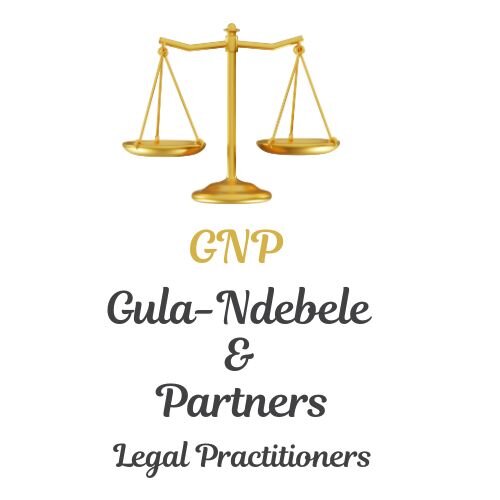Best Arrests & Searches Lawyers in Zimbabwe
Share your needs with us, get contacted by law firms.
Free. Takes 2 min.
Or refine your search by selecting a city:
List of the best lawyers in Zimbabwe
About Arrests & Searches Law in Zimbabwe
The legal framework governing arrests and searches in Zimbabwe is designed to balance individual rights with the state's duty to maintain law and order. The Constitution of Zimbabwe and the Criminal Procedure and Evidence Act are the primary legal documents outlining the rights of individuals and the powers of law enforcement in these contexts. Under these laws, individuals have protections against arbitrary arrests and searches, and law enforcement officers are required to follow specific procedures to ensure the legality and fairness of their actions.
Why You May Need a Lawyer
Legal assistance is crucial in various situations related to arrests and searches. If you are arrested, a lawyer can help explain your rights and ensure they are respected. Legal counsel is also valuable if you believe that a search conducted on your premises was unlawful. Lawyers can provide guidance on how to challenge evidence obtained from illegal searches and can represent you in court to safeguard your interests. Having an attorney is particularly important if you feel your rights were violated during an arrest or search.
Local Laws Overview
Zimbabwe's Constitution guarantees basic rights concerning arrests and searches. Key aspects include:
- Protection against arbitrary detention: No one should be arrested without adequate cause.
- Right to be informed of the reason for arrest: Upon arrest, individuals must be promptly informed of the reasons and any charges against them.
- Right to legal representation: Arrested individuals have the right to consult with a lawyer.
- Search warrant requirements: Most searches require a warrant, except in extraordinary circumstances outlined by law.
- Exclusion of evidence: Evidence obtained through unlawful searches may be deemed inadmissible in court.
Frequently Asked Questions
What should I do if I am arrested?
Remain calm, do not resist, ask for reasons for the arrest, and request to speak with your lawyer.
Can the police search my home without a warrant?
Generally, a warrant is required unless there is an emergency or exigent circumstance, such as preventing harm or destruction of evidence.
What rights do I have if stopped by the police on the street?
You have the right to know why you are being stopped, remain silent, and refuse a search unless there is legal justification or probable cause.
How can I challenge an illegal search?
Consult a lawyer immediately to discuss filing a motion to suppress any evidence obtained from the illegal search.
What should I do if I am not informed of my charges after arrest?
Request immediate clarification and contact a lawyer, as you have the right to be informed promptly of the charges.
Are there specific laws that protect children during arrests?
Yes, special legal protections exist for minors, including the presence of a guardian or lawyer during questioning.
Is evidence obtained illegally always inadmissible in court?
Generally, yes. However, there are exceptions, so it is essential to have legal guidance to navigate these scenarios.
Can I record a police officer during an arrest or search?
The law does not explicitly prohibit recording, but it should be done transparently and without interference.
Can I be searched without my consent?
Yes, if there is legal justification such as a search warrant, probable cause, or your consent.
How long can I be detained without charge?
The Constitution provides that you should not be detained for more than 48 hours without being brought to court.
Additional Resources
For further information and assistance, consider reaching out to the following entities:
- Zimbabwe Lawyers for Human Rights
- The Zimbabwe Human Rights Commission
- Legal Resources Foundation
- Zimbabwe Republic Police (ZRP) Complaints Desk
Next Steps
If you require legal assistance regarding an arrest or search, consider taking the following steps:
- Contact a lawyer who specializes in criminal law or human rights issues.
- Gather all relevant information and documents regarding the incident.
- File a complaint with the Zimbabwe Human Rights Commission or ZRP if you believe your rights were violated.
- Arrange a meeting with your lawyer to discuss your options and possible outcomes.
- Follow your lawyer's advice on how to proceed with your case.
Lawzana helps you find the best lawyers and law firms in Zimbabwe through a curated and pre-screened list of qualified legal professionals. Our platform offers rankings and detailed profiles of attorneys and law firms, allowing you to compare based on practice areas, including Arrests & Searches, experience, and client feedback.
Each profile includes a description of the firm's areas of practice, client reviews, team members and partners, year of establishment, spoken languages, office locations, contact information, social media presence, and any published articles or resources. Most firms on our platform speak English and are experienced in both local and international legal matters.
Get a quote from top-rated law firms in Zimbabwe — quickly, securely, and without unnecessary hassle.
Disclaimer:
The information provided on this page is for general informational purposes only and does not constitute legal advice. While we strive to ensure the accuracy and relevance of the content, legal information may change over time, and interpretations of the law can vary. You should always consult with a qualified legal professional for advice specific to your situation.
We disclaim all liability for actions taken or not taken based on the content of this page. If you believe any information is incorrect or outdated, please contact us, and we will review and update it where appropriate.
Browse arrests & searches law firms by city in Zimbabwe
Refine your search by selecting a city.

















